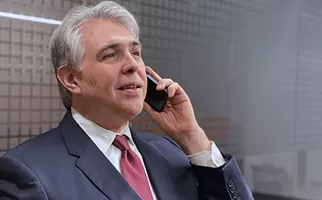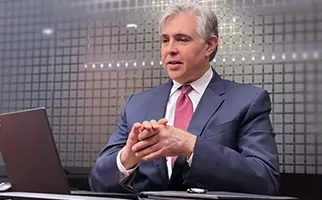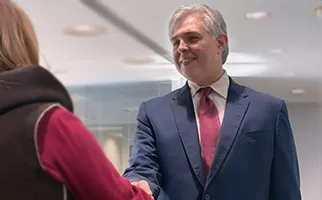COPYRIGHT TRANSFER
A legal transfer is vital for any copyright owner wishing to grant another person access to the rights of his or her work.
Trademarks
The vast and complex realm of “Copyright” can often seem like a labyrinth to the uninitiated. 
The Bedrock: Deep-Diving into Copyright
In our rapidly evolving digital age, the significance of copyright has never been more pronounced. Every unique creation, from groundbreaking software to captivating novels, is imbued with copyright upon its inception. This legal entitlement offers creators exclusive rights, ensuring that their innovations remain uncompromised and free from unsanctioned replication or usage.
But what does this mean for you? Understanding copyright is pivotal whether you’re an artist, entrepreneur, or tech innovator. It’s your first line of defense against potential infringements, offering legal recourse should others try to exploit your work without permission.
The Evolution: Initiating a Transfer of Copyright
You’ve nurtured your creation, but now, for myriad reasons, you wish to pass the baton, either wholly or partially. “Transfer of Copyright” is that legal conduit, enabling a seamless transition of rights. It’s not just about relinquishing control but doing so in a way that’s legally binding and beneficial to all parties involved.
Collaborative Ventures
You may be entering a collaborative project, and delineating ownership is crucial. Here, understanding the intricacies of copyright transfer ensures everyone is on the same page.
Monetizing Assets
You may be eyeing the commercial potential of your intellectual property. Licensing or selling your copyrighted material can be lucrative, but only if done right.
The Procedure: From Draft to Documentation
The process of “Transfer of Copyright” is multifaceted
Formulating the Agreement
Beyond just the exchange of rights, the Copyright Transfer Agreement (CTA) is about clarity and forethought. 
Legitimization and Registration
An essential step that transforms an informal pact into a legally binding agreement. Recording with the U.S. Copyright Office is not just a formality; it’s necessary, offering legal validity to the transfer.
Navigating Challenges in Copyright Transfers
While on paper it might seem straightforward, transferring rights is seldom without its complications:
Conflict Resolution
What happens when two entities stake a claim on the same intellectual property? Timing, documentation, and legal expertise play pivotal roles in determining rightful ownership.
Modifications and Addendums
You may be willing to transfer but with stipulations. It is paramount to understand how to incorporate these changes while ensuring they’re legally sound.
Conflicting Transfers
If two transfers submitted to the copyright office are conflicting, then the first one submitted will be considered the valid agreement if it is recorded:
- Within one month after being carried out in the United States.
- Within two months after being carried out outside of the United States.
- Before the recordation of the second transfer.
The transfer submitted later will be considered a valid agreement if it has valuable information regarding the transfer agreement that the first one did not include and if it was created with good intentions. For example, if the second agreement has a binding promise to pay royalty fees and the first one does not, then the second one will be considered a valid transfer agreement.
If there is a dispute between a non-exclusive license and a conflicting transfer of ownership, then the non-exclusive license will take precedence over the conflicting transfer if:
- It is signed by the copyright owner or the owner’s patent lawyer.
- The license was created before the transfer was executed.
- The license was created with good intentions before the transfer was recorded.
In this case, it does not matter if the non-exclusive license was recorded if it meets the abovementioned conditions.
Modifications
The copyright owner has complete control over how the work is transferred. He or she can specify modifications to the transfer agreement if they do not want the new owner to publish certain statements, tables, pictures, etc. These modifications are attached to the transfer agreement and are called addendums. There are varied policies on addendums, though, and it is advised to consult with a legal professional to advise on how to create such modifications.
Termination of Transfer
An author may want to reacquire the rights to his or her works that were previously transferred, but the process of terminating a copyright transfer is often complex and time-consuming. There are various rules regarding transfer terminations depending on when the copyrighted work was published.
The Assurance of Partnering with The Law Offices of Konrad Sherinian, LLC
What sets us apart in the intricate “Copyright” world? It’s our unyielding commitment to our clients, expertise, and deep understanding of the evolving legal landscape. With us by your side, you’re not just getting legal representation but partnering with a dedicated team invested in your success.
Your work, your creation, is an extension of you. When it comes to managing and protecting your intellectual treasures, you can trust our firm. With a robust history of successful case outcomes, client testimonials, and an unyielding commitment to clarity, our firm stands as an emblem of trust in “Copyright” matters including transfer of copyright.
Embark with Confidence
Whether you’re a creator seeking protection, an entrepreneur eyeing expansion or anyone in between, understanding “Copyright” and “Transfer of Copyright” is invaluable. Dive into this journey with the confidence that The Law Offices of Konrad Sherinian, LLC has your back. Get in touch with us at 630 318 2606 today for meticulous guidance, expertise, and tailored solutions.
Copyright 101
What is a copyright?
Watch our overview video on copyrights. It covers a lot of the basics, and is presented by Konrad Sherinian, one of the most experienced copyright attorneys in the United States.
Call for a Consultation
(630) 318-2606
Questions About Copyrights?
Phone Consultation
Find it easier to talk rather than write? Have a lot of questions you want to ask? Let's talk over the phone.
Virtual Consultation
Need to share something on screen with us? Like to see who you are working with? Let's get online.
In-Person Consultation
Prefer a face-to-face and a handshake? We have offices in Chicago or Naperville, Illinois.
Need to register or obtain a copyright? Need to transfer, defend or enforce one? Before you take a risk regarding your creation, invention, or idea, call us for a consultation with an experienced copyright attorney.
Available 24/7
Copyright FAQs
Here’s a list of the most frequently asked questions about copyrights. Open each to see our pages dedicated to that topic.
How do I get a legal copyright?
It is widely believed that by placing the popular copyright symbol, ©, that they will have protected their work. This is not true.
The ONLY way to get copyright protection is to register it with the USPTO.
Here's a page entirely devoted to registering a copyright.
How long does a copyright last?
Copyright protection exists for a limited time, which, for most works created on or after January 1, 1978, is the life of the author plus seventy years.
Why transfer a copyright?
When a copyright owner wishes to grant another person access to the rights of his or her work, they must complete a copyright transfer agreement.
If a copyright owner wants to give one exclusive, or partially exclusive rights, of the copyrighted material, then a written agreement must be signed by the copyright owner or the owner’s attorney.
If non-exclusive rights are being transferred, then a written agreement is not necessary but is still usually advised.
Experienced Copyright Attorneys
Our firm has helped many copyright holders protect their intellectual property, as well as defended numerous copyright infringement cases. Our depth of understanding the application of copyright in the face of today’s technological innovations is strong and have experience dealing with copyright transfer agreements, addendums, and terminations. If you need any further information regarding copyrights or would like to set up a consultation, please contact our office today.





